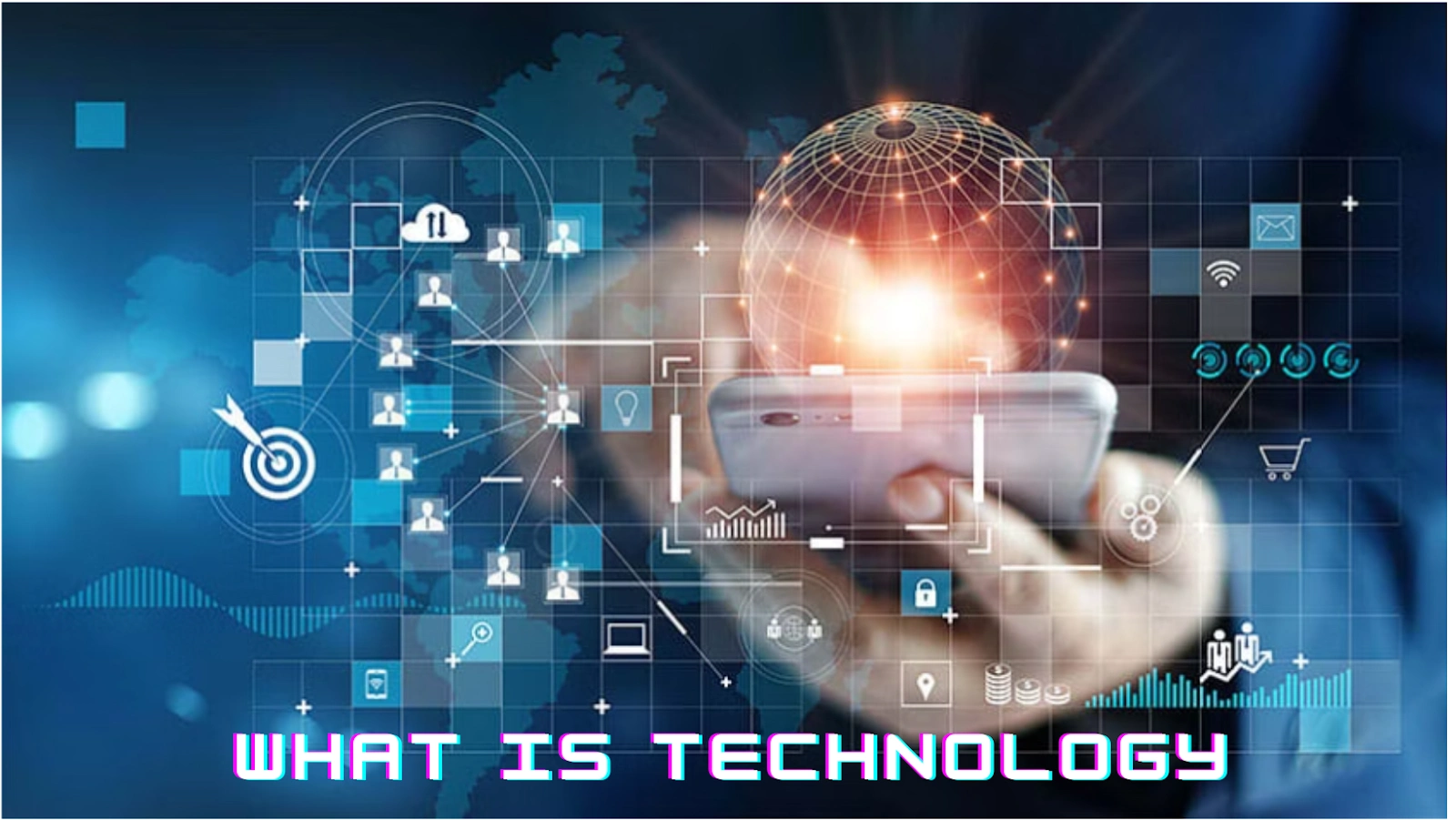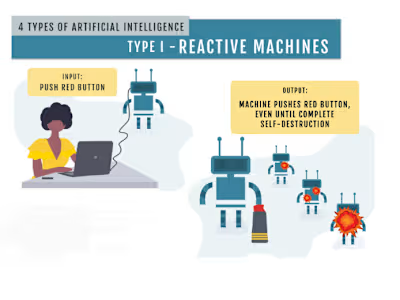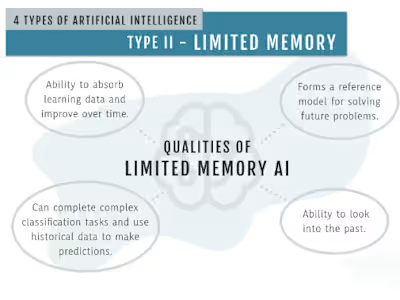Sample 1
What is Technology, its types, impacts, and Future?
Have you ever wondered about the powerful force that shapes our world, drives progress, and affects nearly every aspect of our lives? Get ready, because we're about to dive into the world of technology.

TABLE OF CONTENT
Understanding Technology
The Evolution of Technology
Types of Technology
Positive Impacts of Technology
Negative Impacts of Technology
The Future of Technology
Conclusion
FAQs
1. What is Technology?/Understanding Technology
Technology refers to the application of scientific knowledge, tools, and techniques to create, modify, or improve processes, systems, or products. It encompasses a wide range of hardware, software, and processes that enable human beings to solve problems, enhance productivity, and improve their quality of life.
In today's world, technology is like the invisible thread that connects everything we do. It's in how we talk to each other, how we get around, how we stay healthy, and even how we have fun. It helps us do more, work better, and push the boundaries of what we thought was possible.
i) Components of technology:
The Technology consists of three key components:
Hardware:
Physical devices or equipment used to perform tasks.
Examples are computers, smartphones, robots, and sensors.
Software:
Programs, applications, or instructions that control the hardware and enable it to perform specific functions.
Examples include operating systems, word processors, and mobile apps.
Processes:
Methods, procedures, or workflows used to accomplish tasks or achieve desired outcomes.
This can involve steps like data analysis, manufacturing processes, or software development methodologies.
ii) Importance of technology:
Technology plays a pivotal role in various aspects of society, impacting individuals, businesses, and governments alike.
Communication:
Technology has revolutionized communication, allowing people to connect and exchange information globally. For example, social media platforms, email, video conferencing, and instant messaging apps have transformed the way we interact and share ideas.
Healthcare:
Technological advancements have significantly improved medical diagnostics, treatments, and patient care. Examples include medical imaging technologies like MRI and CT scans, telemedicine services, and electronic health records.
Transportation:
Technology has transformed the way we travel and transport goods. Innovations such as electric vehicles, autonomous cars, and high-speed trains have made transportation faster, more efficient, and environmentally friendly.
Education:
Technology has revolutionized the education sector, enabling online learning, digital classrooms, and interactive educational tools. E-learning platforms, educational apps, and virtual reality simulations are some examples of how technology enhances learning experiences.
iii) Examples of technology in everyday life:
Smartphones:
These portable devices combine various technologies like telecommunication, computing power, and internet connectivity, allowing us to access information, communicate, and perform a wide range of tasks on the go.
Internet of Things (IoT):
IoT refers to the network of physical devices embedded with sensors, software, and connectivity, enabling them to collect and exchange data. Examples include smart home devices, wearable fitness trackers, and industrial monitoring systems.
Artificial Intelligence (AI):
AI involves the development of intelligent machines that can mimic human cognitive functions. Applications range from virtual assistants like Siri and Alexa to complex systems like autonomous vehicles and machine learning algorithms.
2. The Evolution Of Technology
Technology has come a long way, and its progress has transformed our lives. Let's explore the journey of technological advancements and their impact on society.
i) From Simple Tools to the Industrial Revolution
Technology began with basic tools our ancestors created, like sharp stones for hunting and fire for warmth and cooking. As civilizations developed, people invented more advanced tools and techniques. For example, they created systems of writing to record information and found better ways to grow crops. Impressive structures, such as pyramids, showcased their engineering skills.
The Industrial Revolution: A Major Shift
The Industrial Revolution, which happened in the 18th and 19th centuries, was a game-changer. It brought machines and factories, replacing manual labor. The invention of the steam engine powered trains and made transportation faster and more efficient.
The Information Age: Computers and the Internet
Computers changed everything in the mid-20th century. They processed data quickly and accurately, revolutionizing various industries. With computer networks and the internet, communication became global. We gained access to vast amounts of information through computers and the web.
The Digital Revolution: Impact and Transformation
The digital revolution, driven by the widespread use of the internet, has transformed how we communicate, do business, and enjoy entertainment. Personal computers became common, giving us access to information like never before. Traditional models of music, film, and publishing were disrupted, and new forms of media consumption emerged.
Recent Advancements: Shaping the Future
Recent technological advancements continue to shape our future. Artificial intelligence (AI) allows machines to perform complex tasks, with virtual assistants. Virtual reality (VR) technology provides immersive experiences for entertainment and training. Blockchain technology offers secure and transparent platforms for finance and supply chains. Renewable energy technologies hold promise in addressing climate change.
ii) The Journey Continues
The evolution of technology is ongoing. It has the potential to revolutionize society and improve our lives. Embracing change and staying adaptable is important as we anticipate future innovations. Technology opens the door to a brighter and more connected future.
Understanding the evolution of technology helps us appreciate how far we've come. Technological advancements impact our societies, economies, and personal lives. By embracing and understanding these changes, we can navigate the future with confidence and adaptability.
3. Types of technology
Technology has become an integral part of our lives, encompassing a vast array of tools and systems that serve various purposes. From communication and healthcare to transportation and the environment, technology plays a crucial role in shaping our modern world. In this section, we will delve into different types of technology and explore their practical applications, showcasing how they have revolutionized our lives.
i) Information and Communication Technology (ICT):
Information and Communication Technology, commonly known as ICT, has transformed the way we interact, work, and access information. Computers, smartphones, and tablets have become essential devices in our everyday lives. They enable us to communicate, browse the internet, and access a wealth of information at our fingertips. Moreover, email, messaging apps, and video conferencing tools have revolutionized communication, making it more instantaneous and convenient. Internet and web technologies have introduced search engines, social media platforms, and online communities, connecting people across the globe. also, productivity software such as word processors, spreadsheets, and presentation tools have enhanced our efficiency and streamlined work processes.
ii) Medical Technology:
The advancements in medical technology have significantly improved healthcare outcomes and patient care. Medical imaging technologies like X-rays, MRI, and CT scans provide detailed insights into the human body, aiding in accurate diagnoses. Biotechnology has paved the way for groundbreaking advancements in genetic engineering, cloning, and gene therapy, offering new possibilities for treating diseases. Medical devices like pacemakers, prosthetics, and robotic surgery systems have revolutionized treatment options, enhancing the quality of life for patients. Moreover, telemedicine enables remote healthcare consultations and monitoring, making healthcare accessible to individuals in remote areas.
iii) Transportation Technology:
Transportation technology has made travel faster, safer, and more efficient. Automobile technology has witnessed remarkable progress, focusing on fuel efficiency, electric vehicles, and autonomous driving, paving the way for sustainable transportation. Aviation technology has improved air travel with advanced jet engines, navigation systems, and radar, ensuring safety and efficiency. High-speed rail and maglev trains have revolutionized land transportation, offering rapid connectivity between cities. also, transportation infrastructure benefits from smart traffic management systems, optimizing traffic flow and reducing congestion.
iv) Environmental Technology:
As the world grapples with environmental challenges, technology plays a vital role in mitigating the impact and promoting sustainability. Renewable energy technologies like solar power, wind energy, and hydropower offer clean alternatives to traditional energy sources. Waste management technology introduces recycling systems and waste-to-energy processes, reducing the burden on landfills. Environmental monitoring systems equipped with air quality sensors and water quality analysis tools help us understand and address environmental issues effectively. Moreover, green building technology focuses on energy-efficient structures and sustainable materials, promoting eco-friendly construction practices.
v) Educational Technology:
Educational technology has revolutionized the way we learn and acquire knowledge. E-learning platforms offer online courses, virtual classrooms, and educational apps, making education accessible to a broader audience. Interactive learning tools and simulations enhance engagement and provide immersive learning experiences. Digital libraries and information resources give students and researchers access to vast amounts of knowledge at their fingertips. Furthermore, assistive technology for special education ensures inclusivity and support for learners with diverse needs.
vi) Financial Technology (Fintech):
Financial technology, or Fintech, has transformed the way we manage our finances and conduct transactions. Online banking and mobile payment systems offer convenience and flexibility, enabling seamless financial transactions. Cryptocurrencies and blockchain technology provide alternative decentralized systems for secure digital transactions. Robo-advisors and automated trading systems simplify investment decisions and optimize portfolio management. also, peer-to-peer lending and crowdfunding platforms empower individuals and businesses to access funding outside traditional financial institutions.
vii) Industrial Technology:
Industrial technology streamlines manufacturing processes and optimizes supply chains, improving productivity and efficiency. Manufacturing automation and robotics reduce manual labor and enhance production speed and precision. Supply chain management systems facilitate seamless coordination and transparency across the supply chain, optimizing inventory management and logistics. 3D printing and additive manufacturing introduce innovative production methods, offering customized products and prototypes. Moreover, the Industrial Internet of Things (IIoT) integrates machines, sensors, and data analytics to optimize industrial processes and enable predictive maintenance.
4. Positive Impacts of Technology
i) Advancements in Healthcare:
In recent years, technology has revolutionized the healthcare industry, leading to remarkable advancements in treatments, diagnostics, and patient care. Medical professionals now have access to state-of-the-art equipment, advanced imaging technologies, and precision tools that enable more accurate diagnoses and personalized treatment plans. Technology has also accelerated research and development, resulting in breakthrough discoveries and new therapies that improve patient outcomes. From telemedicine and wearable devices to electronic health records, technology has made healthcare more accessible, efficient, and patient-centric.
ii) Enhanced Communication:
Technology has reshaped the way we communicate, breaking down geographical barriers and connecting people across the globe. The rise of the internet, social media, and instant messaging platforms has transformed the way we interact, share information, and collaborate. Communication has become instantaneous, enabling individuals, businesses, and organizations to connect and exchange ideas effortlessly. Distance is no longer a hurdle, as video conferencing and virtual meetings allow face-to-face interactions regardless of physical location. The power of technology has fostered global communities, facilitated cross-cultural understanding, and sparked innovation through collaboration on an unprecedented scale.
iii) Increased Productivity and Efficiency:
One of the most notable benefits of technology is its ability to enhance productivity and efficiency across various industries. Automation, artificial intelligence, and machine learning have streamlined processes and eliminated manual, time-consuming tasks. This has not only increased productivity but also freed up human resources to focus on more complex and creative endeavors. Technology has transformed industries such as manufacturing, logistics, and finance, where efficiency gains have translated into cost savings and improved customer experiences. From inventory management systems to data analytics tools, technology has become a driving force behind optimizing workflows and driving innovation.
5. Negative Impacts of Technology
i) Social Isolation
One of the concerns associated with technology is the increasing prevalence of social isolation. With the rise of smartphones, tablets, and social media platforms, we find ourselves spending more time engrossed in screens and less time engaging in face-to-face interactions. The virtual world can create a false sense of connection while simultaneously distancing us from genuine human connections. Excessive screen time can lead to feelings of loneliness, reduced social skills, and an overall decline in mental well-being. It is crucial to strike a balance between our digital lives and real-life interactions to mitigate the negative effects of social isolation.
ii) Privacy and Security Issues
As technology evolves, so do the risks associated with privacy and security. Data breaches, hacking incidents, and the collection of personal information have become recurring concerns. With the increasing interconnectedness of devices and the internet, our personal data is vulnerable to exploitation. From identity theft to unauthorized surveillance, these privacy and security issues can have far-reaching consequences. It is essential to stay informed about online privacy practices, safeguard personal information, and advocate for stronger data protection measures to protect ourselves in the digital age.
iii) Job Displacement
Technological advancements have undoubtedly transformed industries, making tasks more efficient and streamlining processes. but, this progress has also led to concerns about job displacement. Automation and artificial intelligence have the potential to replace human labor in various fields, leaving many workers uncertain about the future of their employment. While technology has historically created new job opportunities, the transition can be challenging, particularly for individuals in industries susceptible to automation. It is crucial to adapt to technological changes by acquiring new skills and fostering a workforce that can thrive alongside emerging technologies.
6. The Future of Technology
Technological trends:
The relentless march of technology brings forth emerging trends that have the power to reshape our society. One such trend is artificial intelligence (AI), which is revolutionizing industries like healthcare, transportation, and finance. AI-powered systems can analyze vast amounts of data, leading to more accurate diagnoses, autonomous vehicles, and enhanced fraud detection.
The Internet of Things (IoT) is another game-changer. With the ability to connect various devices and systems, IoT enables a seamless flow of information, optimizing efficiency and convenience. Smart homes, wearable devices, and smart cities are just the beginning of the possibilities this interconnectedness brings.
Blockchain technology has the potential to transform industries such as finance, supply chain management, and voting systems. Its decentralized nature ensures transparency, security, and trust, eliminating intermediaries and streamlining processes.
Ethical considerations:
Amidst the excitement of technological advancements, it is crucial to address the ethical implications they pose. As we venture into uncharted territories, we must prioritize ethical decision-making to ensure that technology benefits all of humanity. Privacy concerns, algorithmic biases, and the impact of automation on employment are just a few ethical dilemmas that require our attention.
Developing technologies that respect privacy rights is imperative. As data becomes the fuel for innovation, protecting individuals' personal information is essential. Striking a balance between data utilization and safeguarding privacy will be vital in shaping the future landscape.
We must also address algorithmic biases that can perpetuate discrimination. As AI systems become more integrated into our lives, it is essential to design and train them in a manner that is fair, unbiased, and accountable. Diversity and inclusivity in tech development teams can help mitigate these biases.
Speculating on future possibilities:
The future of technology is rife with exciting possibilities. Space exploration, for example, holds immense potential for scientific discovery and the expansion of our horizons. Private space companies are pushing boundaries, aiming for manned missions to Mars and beyond. As we venture deeper into space, we may unlock new knowledge and resources that could transform our understanding of the universe.
Renewable energy is another area primed for substantial growth. With the urgent need to combat climate change, innovative technologies are emerging to harness solar, wind, and other renewable sources. Advancements in energy storage and distribution can lead to cleaner and more sustainable power systems, reducing our reliance on fossil fuels.
In the realm of healthcare, personalized medicine is set to revolutionize treatments. With advancements in genomics, researchers can develop tailored therapies based on an individual's genetic makeup. Precision medicine holds the promise of more effective treatments, minimizing side effects, and improving patient outcomes.
Conclusion
Technology has transformed the world we live in, shaping our daily lives and propelling us toward a future filled with endless possibilities. It has improved our quality of life, increased efficiency, and expanded our knowledge and capabilities. but, it is crucial to navigate the advancements responsibly, addressing the challenges and ethical considerations that arise. As we move forward, embracing technology with a human-centric approach, AI will continue to play a pivotal role, unlocking new frontiers and reshaping the landscape of innovation. The future of technology is indeed exciting, and we eagerly await the countless breakthroughs it will bring.
FAQs
Q1: How does technology impact society?
Ans: Technology has a profound impact on society by influencing the way we communicate, work, travel, access information, and conduct various aspects of our daily lives. It has revolutionized industries, increased efficiency, and created new opportunities
Q2: What is technology in a simple definition?
Ans: Technology, in a simple definition, refers to the application of scientific knowledge and tools to create solutions, improve processes, and meet human needs. It involves using techniques, systems, and devices to accomplish tasks more efficiently, effectively, or conveniently.
Q3: What is technology and an example?
Ans: Technology encompasses various innovations and advancements that aid in solving problems or enhancing human activities. An example of technology is the smartphone, which combines multiple technologies such as telecommunications, computing, and multimedia capabilities to provide communication, internet access, and various applications in a portable device.
Q4: What is technology in two words?
Ans: In two words, technology can be described as "applied science." This phrase captures the essence of technology by emphasizing its practical nature, where scientific knowledge is utilized to develop useful tools, techniques, and systems.
Q5: Who defines technology?
Ans: Technology is a broad and evolving field, and its definition can vary depending on context and perspectives. Various stakeholders, including scientists, engineers, researchers, inventors, and scholars, contribute to defining technology through their expertise and ongoing discussions. also, organizations like professional societies, academic institutions, and industry associations also provide input and contribute to the definition of technology within their respective domains.
Like this project
Posted Jun 30, 2023
Sample 1 of my work
Likes
0
Views
3




